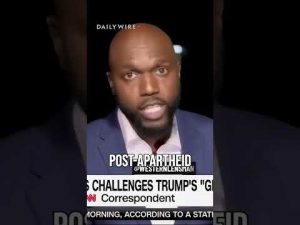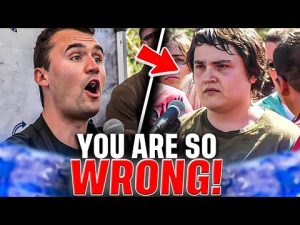It seems that former President Trump is back at it with his knack for making bold claims that spark heated debates. During a session with the South African President, Trump focused on the issue of so-called “white genocide” in South Africa, a topic that has long been a point of contention. Despite the denials from the South African president and a lack of evidence reported by various media outlets, Trump insisted on showing video footage that supposedly depicted mass graves and violence targeting white farmers. The video turned out to be a questionable choice since some reports suggest the graves are mere props from a protest, not actual crime scenes. But why let facts get in the way of a headline-grabbing narrative, right?
Trump wouldn’t be Trump if he didn’t take a swipe at the media, especially his favorite target, NBC. When NBC’s Peter Alexander dared to question him, Trump lashed out, calling NBC a disgrace. One might wonder if there’s an award for most creative use of dodging direct questions because Trump would certainly be in the running. He artfully diverted the conversation; perhaps that’s why he’s always been a fan favorite among hard-core supporters who enjoy a good media bashing. After all, attacking the press is a classic play from his well-worn playbook.
The situation in South Africa is undeniably complex, with reports of violence affecting all communities, not just white farmers. However, Trump seemed to prefer a simplified storyline that conveniently underlined his anti-immigrant policies. His supporters applaud his “tell-it-like-it-is” attitude, while critics are left shaking their heads, suspecting him of spreading a white nationalist narrative. The evidence Trump presented wasn’t exactly rock-solid, but let’s be honest, since when has that stopped a good political narrative from taking root?
There’s a suggestion from some analysts that Trump might be clinging to a narrative that fits his own agenda, even if it doesn’t quite match reality. In South Africa, like in many parts of the world, land and power dynamics are deeply entwined with the country’s history. While Trump paints a picture fitting his “America First” mantra, South African leaders continue to deny claims of targeted white genocide, maintaining that reports of widespread violence are being exaggerated.
Ultimately, Trump’s persistence to push a specific narrative about South Africa isn’t just a case of misinformation; it illustrates a broader strategy in his political arsenal. By focusing on such stories, Trump reinforces his base’s views on racial dynamics and immigration, conveniently distracting from domestic issues at home. And while he’s no longer sitting in the Oval Office, this globetrotting tale underscores how his influence still lingers in the world of political discourse—arguably, much like a pesky tweet that refuses to be forgotten.







